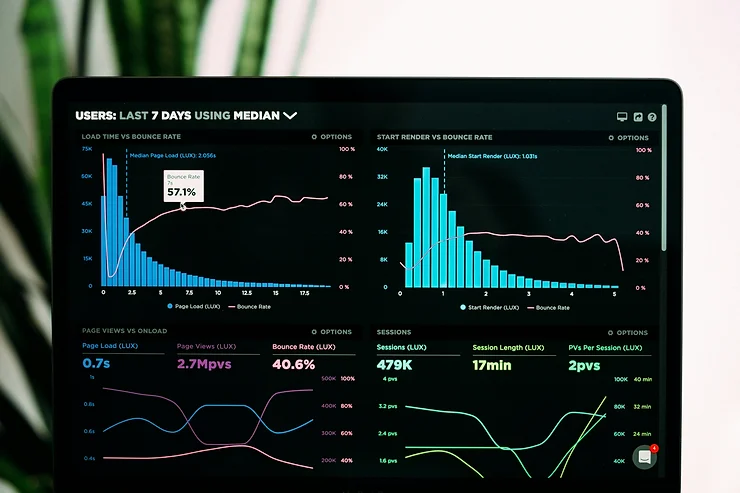Introduction
In today’s data-driven world, the ability to extract actionable insights from vast amounts of data is a competitive advantage. Business Intelligence (BI) tools are essential for organizations aiming to make informed decisions based on data. The BI landscape in 2024 offers a diverse array of tools, each designed to meet specific business needs. With so many options, selecting the right one can be challenging.
Here, we present a curated list of the top BI tools of 2024, highlighting both established leaders and promising newcomers.
Leading Business Intelligence Tools
1. Microsoft Power BI
As a leader in the BI market, Microsoft Power BI stands out for its user-friendly data visualization, seamless integration with Microsoft products like Excel and Azure, and robust collaboration features. Key Features:
-
Intuitive Interface: Easy-to-use drag-and-drop functionality for creating dashboards.
-
Integration: Connects effortlessly with a wide range of data sources and Microsoft services.
-
Collaboration: Enables teams to share reports and dashboards, facilitating real-time collaboration.
2. Tableau
Tableau is renowned for its exceptional data visualization capabilities and an intuitive interface that empowers users to create stunning, interactive dashboards.
Key Features:
-
Visual Analytics: Advanced tools for data exploration and visualization.
-
Flexibility: Supports a wide variety of data sources and platforms.
-
Community: A vibrant user community and extensive resources for learning and support.
3. Looker (Looker Studio by Google)
Now branded as Looker Studio, Looker provides a powerful platform for exploring and analyzing complex datasets, especially for organizations invested in Google Cloud services.
Key Features:
-
Data Exploration: Advanced tools for in-depth data analysis and modeling.
-
Integration: Seamless integration with Google Cloud and other Google services.
-
Customization: Highly customizable dashboards and reports to meet specific business needs.
4. Domo
Domo is known for its scalability and ability to handle large datasets, making it ideal for enterprise-level needs with a comprehensive suite of BI tools.
Key Features:
-
Scalability: Capable of processing and analyzing large volumes of data.
-
Real-time Insights: Offers real-time data updates and alerts.
-
Comprehensive Suite: Includes tools for data integration, visualization, and collaboration.
5. Sisense
Sisense is a robust platform known for its in-memory analytics capabilities, offering exceptional query speed and data exploration for real-time insights.
Key Features:
-
In-Memory Computing: Delivers fast query performance for large datasets.
-
Embedded Analytics: Easily integrates with other applications to provide embedded BI solutions.
-
User-Friendly: Simplifies complex data analysis with intuitive tools.
Emerging Players to Watch
-
ThoughtSpot
ThoughtSpot leverages AI and natural language processing to make data exploration more intuitive and accessible, enabling users to ask questions in plain language and receive immediate insights.
Key Features:
-
AI-Powered Analytics: Uses AI to provide intelligent data insights.
-
Natural Language Processing: Allows users to query data using natural language.
-
Ease of Use: Designed for both technical and non-technical users.
2. Zoho Analytics
Zoho Analytics offers a cost-effective solution for smaller businesses, providing a comprehensive suite of BI tools with a user-friendly interface.
Key Features:
-
Affordable: Budget-friendly pricing for small to medium-sized businesses.
-
Comprehensive Tools: Includes data preparation, visualization, and reporting tools.
-
User-Friendly: Easy to set up and use, with minimal technical expertise required.
3. Yellowfin BI
Yellowfin BI prioritizes user experience with a focus on self-service analytics and data storytelling capabilities, making it easier for users to create and share compelling data narratives.
Key Features:
-
Self-Service Analytics: Empowers users to create their own reports and dashboards.
-
Data Storytelling: Tools to create engaging and informative data stories.
-
Collaboration: Facilitates sharing and collaboration within teams.
Choosing the Right BI Tool
Selecting the ideal BI tool depends on your organization’s specific needs and priorities. Key factors to consider include:
-
Data Volume and Complexity: Ensure the tool can handle your data size and complexity.
-
Desired Data Visualization Capabilities: Look for tools with strong visualization features to meet your reporting needs.
-
Collaboration and Sharing Requirements: Choose a tool that supports your team’s collaboration and sharing preferences.
-
Budget and User Skillsets: Consider the cost and the technical expertise required to use the tool effectively.
Stay Ahead of the Curve
The landscape of BI tools is constantly evolving, with new advancements and trends emerging regularly. Staying informed about the latest developments ensures your organization leverages the most effective tools for data-driven success.
Want to learn more about Business Intelligence solutions? Visit our website or contact us today to discuss how we can help you harness the power of data and make informed business decisions!




